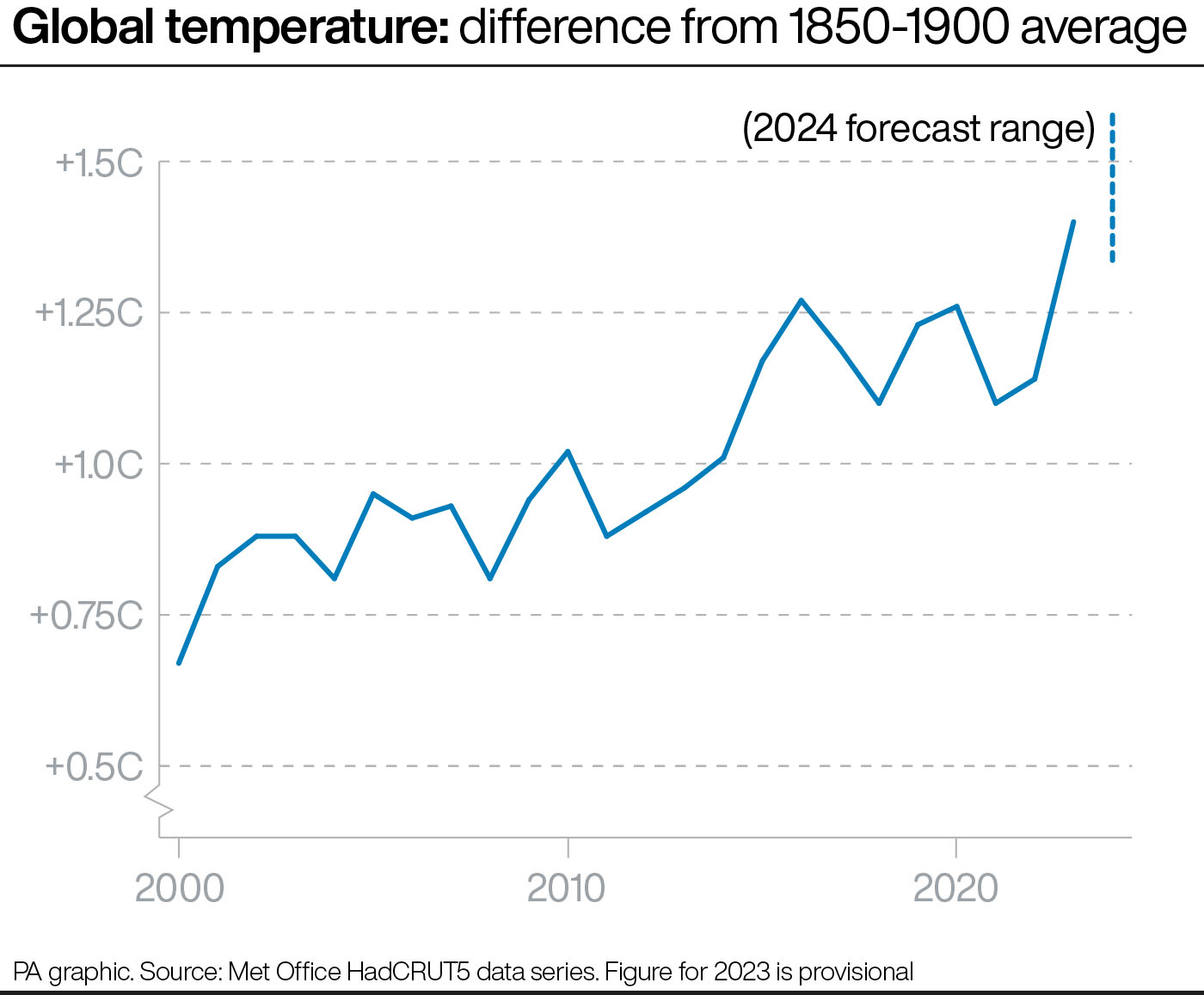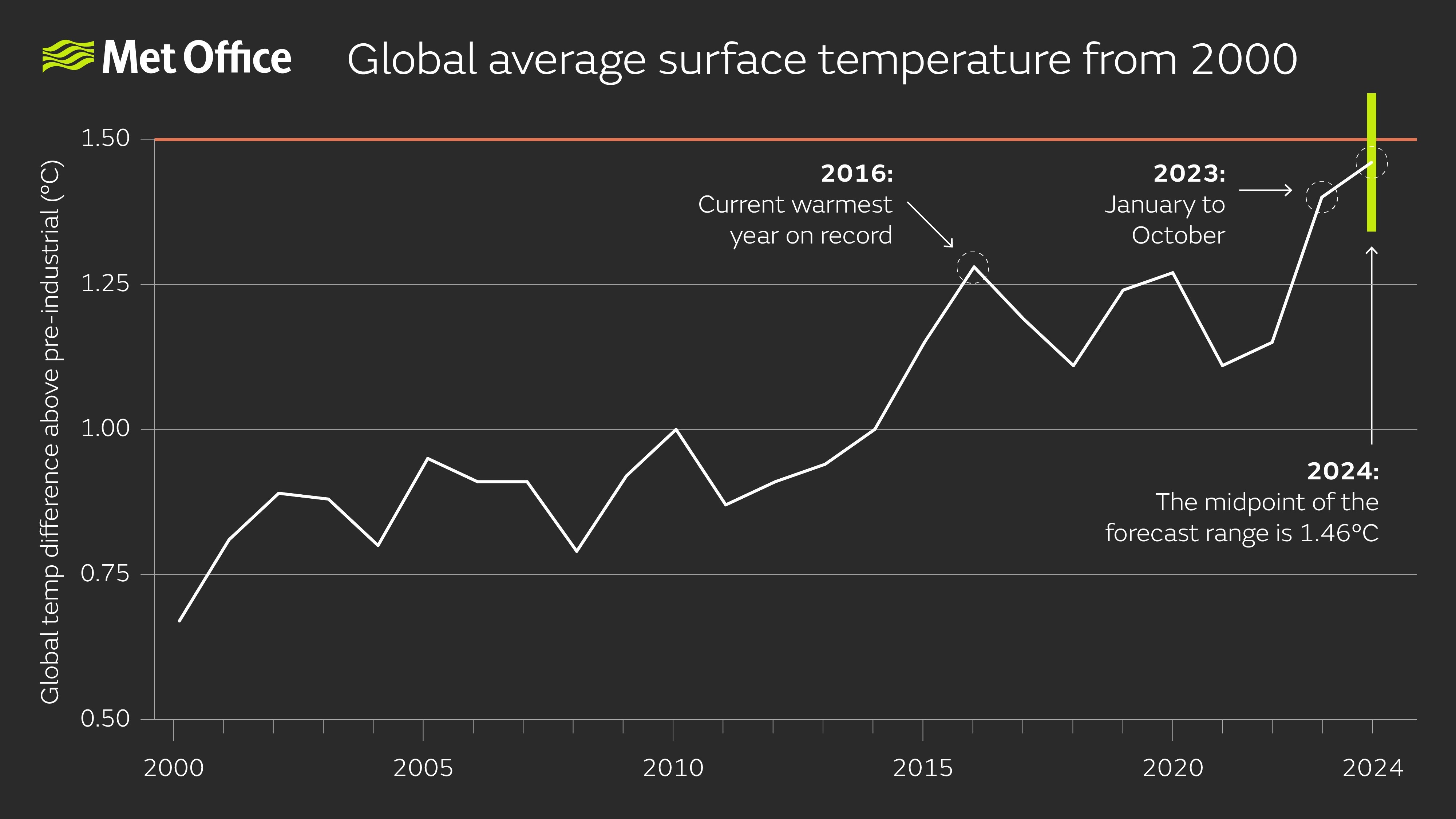Next year’s average global climate temperature may rise higher than 1.5C above pre-industrial levels for the first time in modern history, according to Met Office forecasts.
Limiting warming to 1.5C is a key goal of the Paris Agreement, but as that is measured over a period of around 20 years, exceeding 1.5C for one year does not mean the target has been missed.

Temperature fluctuates naturally and it is likely that in the years immediately after 2024 the annual average will fall below 1.5C again.
It is a significant milestone, nevertheless, as it demonstrates how greenhouse gas emissions are heating the Earth towards an environment that human beings have never experienced before.
The Met Office believe 2024 will finish with an average temperature between 1.34C and 1.58C above the period between 1850-1900 – the 11th year in a row that temperatures will have exceeded 1C.
Forecasters also have tipped this year to finish with an average of 1.2C above pre-industrial levels and it is almost certainly going to be the hottest year on record, surpassing 2020 and 2016.
El Nino, a naturally-occurring phenomenon where heat rises in the tropical eastern Pacific Ocean, is adding further heat to the atmosphere this year and is set to continue into spring 2024, pushing up the average global temperature temporarily.
Dr Nick Dunstone, of the Met Office, said: “The forecast is in line with the ongoing global warming trend of 0.2C per decade and is boosted by a significant El Nino event.
“Hence, we expect two new global temperature record-breaking years in succession and, for the first time, we are forecasting a reasonable chance of a year temporarily exceeding 1.5C.
“It’s important to recognise that a temporary exceedance of 1.5C won’t mean a breach of the Paris Agreement. But the first year above 1.5C would certainly be a milestone in climate history.”

Countries agreed in 2015 to stop the global temperature rising beyond 1.5C as this is the point at which the climate starts becoming dangerously unstable.
Melting of polar and mountain glaciers may become irreversible and trigger further warming regardless of whether human emissions are brought under control.
An overheating ocean may also kill off the world’s coral reefs, which form the basis of diverse ecosystems and the livelihoods of millions of people.
The Met Office’s Professor Adam Scaife said: “The main driver for record-breaking temperatures is the ongoing human-induced warming since the start of the industrial revolution.
“With a month to go, 2023 is almost certain to be the warmest year on record, exceeding the current record set in 2016 which was also boosted by an El Nino event.
“In addition to the El Nino event, we have anomalous high temperatures in the North Atlantic and Southern Ocean, and, together with climate change, these factors account for the new global temperature extremes.”
You may also like: Boris Johnson denies ‘Let the bodies pile high’ phrase – then shown video evidence

